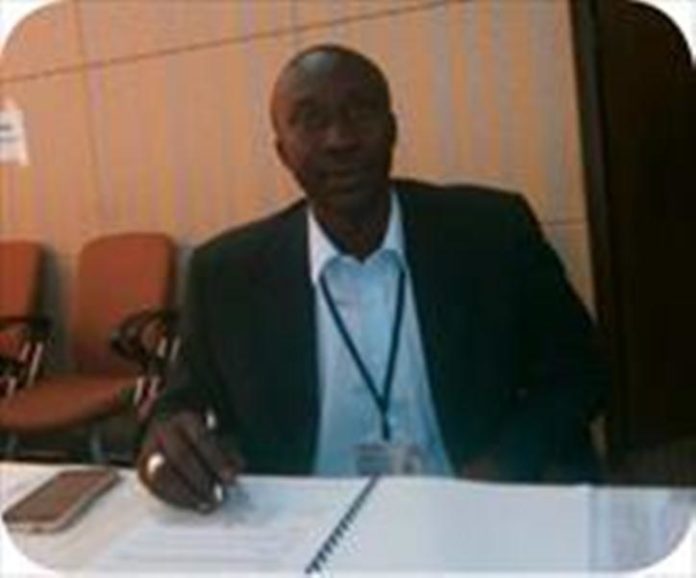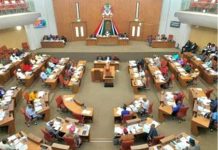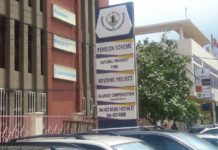By: Kebba AF Touray
The Acting Managing Director of the Gambia Ports Authority (GPA) Ousman Jobarteh, in an interview at his Office, highlighted some of the major achievements registered by his institution. Following a successful completion of dredging works, Jobarteh announced that the current available water depths in the Port Access Channel, has increased to a designed depth of 9.0 m, from 7.9m Chart Datum, at the critical high spots between buoy numbers 2 and 3.
“The increased depth at the access channel is an indication that bigger and deeper draft vessels, could now safely cross the sand bar that is between buoys No.2 and No.3”, Jobarteh said.
Acting MD Jobarteh, stated that the resultant effect is that ships waiting time at the access channel, will be reduced for vessels with drafts in excess of 9m; that congestion at the Port will be significantly minimized as ships waiting time at anchorage will be reduced, and turnaround time improve, due to the capacity to accommodate five ships alongside the existing berths.
Jobarteh went on to say that the draft restriction at this critical point because of the presence of a sand bar, had been a major constraint in terms of the size of vessels that could be attracted to the Port of Banjul.
“It is equally important to announce, that the wharf areas at Banjul Port have also been dredged, with new depths available as follows: Berth No. 1 from 5.5m to 9.0m; Berth No. 2 from 4.6m to 6m; Berth Nos. 3 and 4 from 8.5m up to 12m and Berth No. 5 from 5.5m to 8m. The increased depths alongside the berths has resulted in more ship accommodation facilities, from 3 to 5 available berths or 60% increase in capacity”.
He disclosed that the increment in the capacity coupled with operational efficiency improvement measures, will enhance the competitiveness of the Port. Thus eliminating the congestion surcharges and demurrage, as a result of reduced ship stay in Port.
“It is expected that the potential of the Port of Banjul to excel as a center of excellence for trade, logistics and distribution within the West African sub region and beyond, will be sustained and improved in the years that lie ahead,” Jobarteh concludes.



















